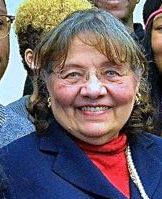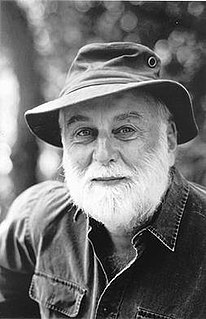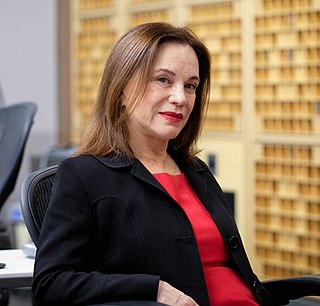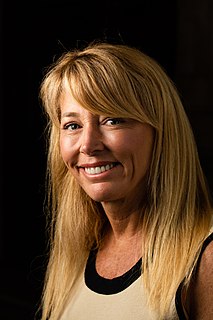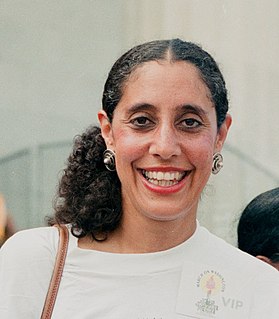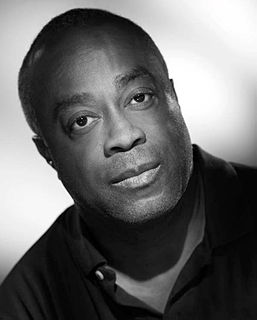Top 219 Segregated Quotes & Sayings - Page 4
Explore popular Segregated quotes.
Last updated on April 20, 2025.
There are still Negro elites. Many of them are obviously much richer, and perhaps a little more integrated into what remains a white power structure. But those old rituals from the social clubs, to the broadly segregated white and black schools, to an obsessive interest in ancestry, all of that does still exist. Look: we are a class-bound society.
By construction, the world of big data is siloed and segmented and segregated so that successful people, like myself - technologists, well-educated white people, for the most part - benefit from big data, and it's the people on the other side of the economic spectrum, especially people of color, who suffer from it. They suffer from it individually, at different times, at different moments. They never get a clear explanation of what actually happened to them because all these scores are secret and sometimes they don't even know they're being scored.
Much of what I do now stems from my rage at segregation and discrimination. I can't stand to see children not able to do anything, anybody not able to do what they can do. The daily lessons of exclusion, having hand-me-down books in schools, of seeing ambulances turn away and not give health care for people lying in the streets who are migrant workers. Everything I do today stems from that segregated existence.
I grew up in the American South, the segregated South. Now we have a black man who is president. It was an age of apartheid, and now that's over. It was an age of two superpowers frozen in a cold war, and now that's resolved. So history marches on, except for this Arab-Israel conflict, which seems to have a claim on being eternal.
I always knew from that moment, from the time I found myself at home in that little segregated library in the South, all the way up until I walked up the steps of the New York City library, I always felt, in any town, if I can get to a library, I'll be OK. It really helped me as a child, and that never left me.
Now, nakedness is a delightful condition. And it keeps you very pleasantly cool - especially, I suppose, if you happen to be a man. But as I walked on eastward that afternoon through my private, segregated, Tonto world (exercising due care at first for previously protected sectors of my anatomy) I found I had gained more than coolness. I felt a quite unexpected freedom from restraint. And after a while I found that I had moved on to a new kind of simplicity. A simplicity that had a fitting, Adam-like, in-the-beginning earliness about it.
I wasn't thinking about history. I was thinking about how we were going to end segregation at lunch counters in Atlanta, Georgia.We would have never thought about making history, we just thought: Here is our chance to get out our sense of rejection at this kind of racial discrimination. I don't know that there was a time that anybody growing up in the South wasn't enraged about being segregated and being discriminated against.
I think there's sometimes too much attention to a few people who do hold extreme views. Most Americans go about their lives living in communities that are increasingly multiethnic, increasingly multi-religious. And they are welcoming of people who are not like themselves. Now, I don't have rose-colored glasses about America, because I grew up in the segregated South. But I watch it every day. I think that Americans are very tolerant people.
But this is predicated upon the man's becoming in very fact an American and nothing but an American. If he tries to keep segregated with men of his own origin and separated from the rest of America, then he isn't doing his part as an American. There can be no divided allegiance here. . . We have room for but one language here, and that is the English language, for we intend to see that the crucible turns our people out as Americans, of American nationality, and not as dwellers in a polyglot boarding-house; and we have room for but one soul loyalty, and that is loyalty to the American people.
The Marines estimate that roughly a hundred or 200 women will be interested in going into these jobs - roughly 2 percent of those jobs. Still, this is historic. It's a biggest cultural change in the military maybe ever, probably bigger than integrating the force back in 1948 when African-Americans were no longer segregated in separate units.
Most new prison construction has occurred in predominately white, rural communities, and thus a new and bizarre form of segregation has emerged in recent years. Ghetto youth are transferred from their decrepit, underfunded, racially segregated schools to brand-new high-tech prisons located in white rural counties.
Cincinnati like so many other cities, we know that so many of our schools, when it comes to public schools, are still de facto segregated racially. It has to do with residential segregation. It has to do with James Crow, Jr., which is at work, de facto rather than legally so that some of the integration is taking place among more and more well-to-do.
When you’re young, your world is pretty limited. My parents, my family, my church dominated my world. And because Birmingham was so segregated, I didn’t really have to encounter the slings and arrows of racism on a daily basis. Obviously, from time to time I did, like when my parents took me to see Santa Claus and he wasn’t letting black children sit on his knee. But my parents tried to insulate me as much as they could.
I always knew from that moment, from the time I found myself at home in that little segregated library in the South, all the way up until I walked up the steps of the New York City library, I always felt, in any town, if I can get to a library, I'll be okay. It really helped me as a child, and that never left me. So I have a special place for every library, in my heart of hearts.
The visionary, industrious, Christian, and segregated black community of the early- to mid-1960s understood and embraced the importance of a positive self-perception. It was this same recognition that drove millions of young patriotic black men throughout our nation's history to be among the first to volunteer when our nation went to war.
One of the concepts I was having trouble illustrating was the concept that administrative systems create narrow categories of gender and force people into them in order to get their basic needs met - what I call "administrative violence." I had images of forms with gender boxes and ID cards with gender markers, but I also wanted an image that would capture how basic services like shelters are gender segregated.
In Europe, you have very different situation than you do in the United States. In Europe, it's very segregated. And you have the diasporas in Belgium that I saw. And they're being radicalized because they're not assimilated with the culture. I don't think we have that same situation in the United States.
In the segregated South, education was almost like armor. It was a way to put yourself in a category where even with the slings and arrows and humiliations of racism and segregation, somehow you had better control of the situation. I always said my parents understood that you might not be able to control your circumstances, but they and their parents believed that you could control your reaction to your circumstances.
This is how a revolution begins. It begins when someone grows tired of standing idly by, waiting for history's arc to bend toward justice, and instead decides to give it a swift shove. It begins when a black seamstress named Rosa Parks refuses to give up her seat on a bus to a white man in the segregated South.
But there's a lot of them that had that exact reaction, who had never heard Trump speak before. And I remember when I said this after [Donald] Trump's speech, I had a lot of emails. "Come, Rush! It's not... People aren't that segregated anymore." Don't doubt me on this. The left, you do not know how they sequester themselves.
We know that there were so many Japanese American soldiers in World War II who were fighting in Europe despite the fact that their families, their parents were back home in American prison camps. It's savagely ironic that between themselves and the African-American soldiers, who were also segregated and didn't see the fruition of the work the culminated in the Civil Rights Act until the '60s, that these American heroes and their stories are not well known; and the fact that the 442nd/100th became the most decorated unit in U.S. history.
I have devoted 30 years of research to how creative people live and work, to make more understandable the mysterious process by which they come up with new ideas and new things. [...] If I had to express in one word what makes their personalities different from others, it's complexity. They show tendencies of thought and action that in most people are segregated. They contain contradictory extremes; instead of being an "individual", each of them is a "multitude".
Michelle Alexander's brave and bold new book paints a haunting picture in which dreary felon garb, post-prison joblessness, and loss of voting rights now do the stigmatizing work once done by colored-only water fountains and legally segregated schools. With dazzling candor, Alexander argues that we all pay the cost of the new Jim Crow.
Tisch has a great film program and a great acting program, but they are segregated; you don't really intertwine. My peers knew I liked acting, so they'd be like, 'Go get that guy Gubler. He'll be in your student film.' I was in the same building. I became their go-to guy. So I left NYU having been in probably one thousand short films.
People nowadays talk about issues as if they're reading lines off a teleprompter. They recite what they read and echo it without thinking. It has become easier to divide people than to unify them, and to blind them than to give them vision. We are no longer unified like a bowl of Cheerios. Instead, we have become as segregated as a box of Lucky Charms. Every day we see the same leprechauns on TV acting like they're the experts of everything.
In whatever country Jews have settled in any great number, they have lowered its moral tone; depreciated its commercial integrity; have segregated themselves and have not been assimilated; have sneered at and tried to undermine the Christian religion upon which that nation is founded, by objecting to its restrictions; have built up a state within the state; and when opposed have tried to strangle that country to death financially, as in the case of Spain and Portugal.
I grew up in the once segregated South. I experienced forced integration during my formative school years. I lived the sacrifices, burdens, and tears. I also lived the moments of understanding, of acknowledgment, of fellowship and success. I saw my parents and grandparents coming home beaten down - and some of my friends beaten up.
Women are so often segregated to their sexuality, and how they appear. In fact, there's a lot of talk, even now, I think in most jobs this is true... people will say, when a woman rises to power, they ask, 'who did she sleep with?' You know, it couldn't possibly be about her acumen, it couldn't possibly be about her intelligence. It's got to be about her body, because that's how women get ahead.
I grew up in a very religious family and it is the motivating force to every thing I do. I am fortunate to have had adults all around me who really lived their faith, in helping other people and doing the best you can do. The world wasn't so wonderful back then, with segregated rule in the South. But we were never hopeless and we never despaired because we had adults out there struggling with us, being there for us, and buffering us.
Coming from the South and growing up in L.A. where it was so segregated - worse than the South in many ways - all the people in my neighborhood were from the South. So you had that Southern cultured environment. The church was very important. And there were these folk ways that were there. I was always fascinated by these Southern stories, people would share these mystified experiences of the South. I wanted to talk about folklore.
